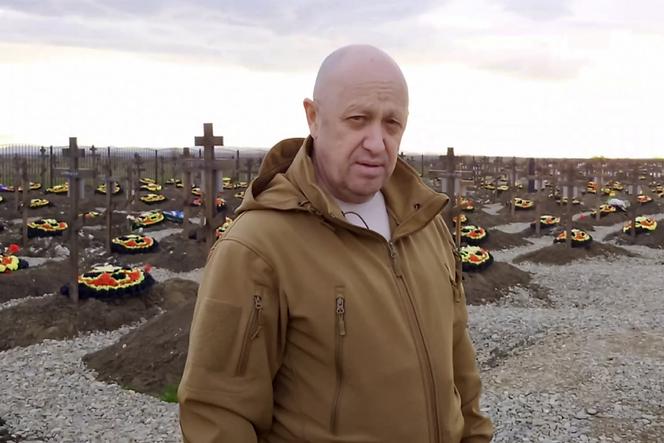


On January 10, 1775, (January 21 according to the Gregorian calendar), when the Tsarist authorities brought rebel leader Yemelyan Pugachev back to Moscow, their message was clear: because he'd laid claim to the imperial throne, the former Cossack officer who had turned against his masters was to suffer exemplary punishment. Displayed in a cage on Bolotnaya Square in the center of the capital, the mutineer was decapitated before the executioner hacked off each of his limbs and hung them on the wheels of a cart.
Times may have changed, but images of charred bodies from the crash of the plane carrying the mutinous Yevgeny Prigozhin, leaked onto social media on Wednesday, August 23, leave nothing to chance. Telegram channels linked to the government claimed that at least one passenger had had their head cut off.
There are other parallels between the bloody paths of these two figures, who were as opportunistic as they were enlightened: Those who followed Pugachev are reminiscent of the convicts Prigozhin pulled from prisons to fight in Ukraine. The Cossack's peasant revolt also resonates with the strong echo of the St. Petersburg businessman's anti-elite rhetoric. The former achieved legendary status after his death; the latter had begun to write his own during his lifetime.
As a young man, Prigozhin dreamed of becoming an Olympic champion; he became the prototype of political adventurism. Born on June 1, 1961, in Leningrad (now St. Petersburg), he later enrolled at sports boarding school No. 62, where he practiced cross-country skiing, coached by his stepfather, Samuil Zharkoi. At the time, in the Soviet Union, sports were praised for their educational virtues, and for promoting the regime abroad through its athletes. For kids from modest backgrounds like Prigozhin, who was raised by his mother and grandmother – he never knew his father, who died young – it was an escape. In the same city, judo offered Vladimir Putin, who was nine years older, a lifeline.

The athletic career of the future Wagner chief was cut short, replaced by petty crime. In November 1979, at just 18 years old, he was sentenced by Leningrad's Kuybyshev (now Samara) court to a 2-year suspended prison sentence for "theft." In 1981, he offended again. This time, a court increased his sentence to 13 years imprisonment for the same offenses, along with "robbery" and "participation of a minor in criminal activity." Among other crimes, he almost strangled a woman in order to steal her wallet, shoes and gold earrings in the middle of the street.
You have 85.36% of this article left to read. The rest is for subscribers only.
